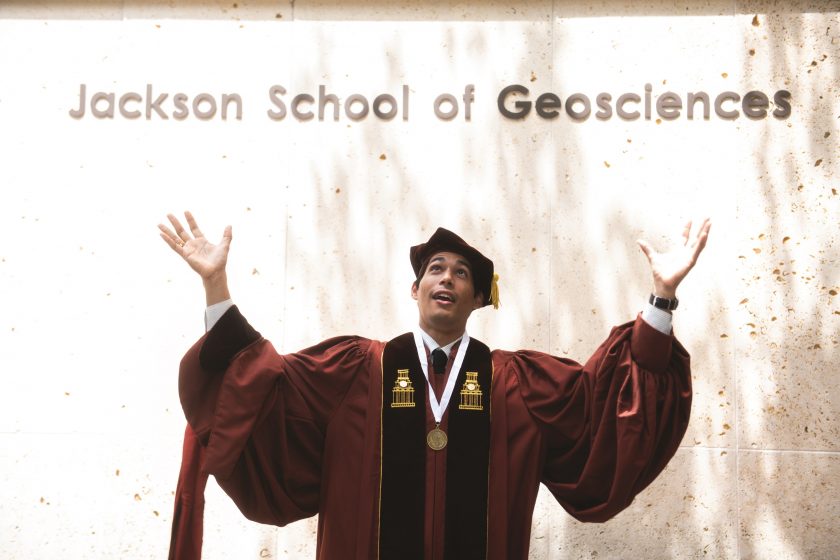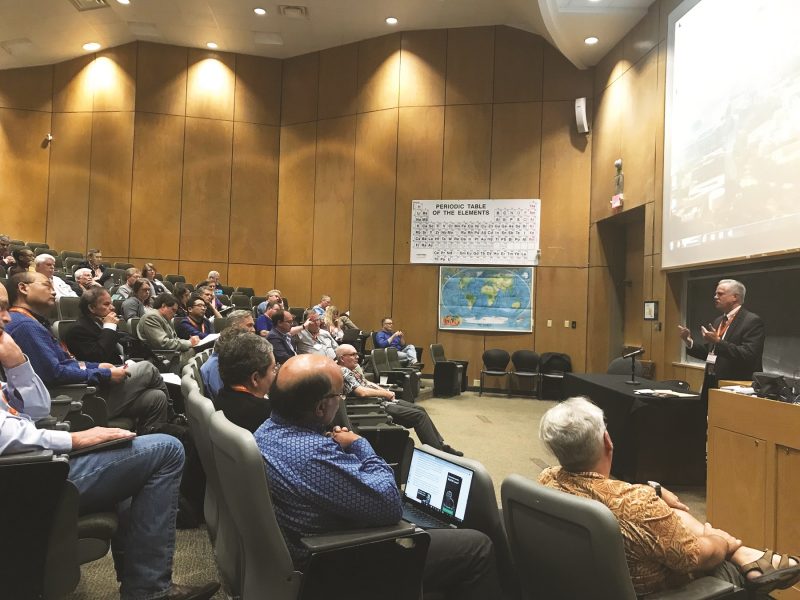Dean Leads Summit on Geosciences Skills
November 21, 2019

Students enrolling in geosciences graduate programs will spend several years in the halls of academia, but it’s unlikely most are going to stay there. Most graduates apply what they learn in school to careers outside of the university, in industry, government or other organizations — so it’s imperative that graduate programs make sure they are prepared.
That was the driving force behind a summit at the Jackson School of Geosciences sponsored by the National Science Foundation on May 11-13, 2019, for department heads and chairs. The summit is part of a national effort led by Dean Sharon Mosher to improve the preparedness of geosciences graduate students for the future workforce. Overall, 75 people attended, representing 64 universities from across the country, plus panelists from government, industry and professional geosciences organizations.
According to the American Geosciences Institute, about half of the students who receive doctorates in geosciences will go into a career other than academics. That number shoots to about 96% with master’s students. Given those statistics, Mosher said that graduate programs need to start providing students a broader education in terms of skills and experiences — rather than focusing solely on academic research.

“There’s a mismatch in graduate education and what they go on to do,” she said.
That doesn’t mean job training or replacing research. Instead, it means cultivating transferable skills that will help students succeed no matter where their careers take them.
Previously, Mosher led a 2018 workshop for employers of doctoral and master’s students in earth, ocean and atmospheric sciences, which identified skills and competencies that cross all geosciences disciplines. There, 52 employers from industry, nonprofits, government agencies and research labs represented interests of a broad spectrum of the geosciences. Employers agreed that, overall, graduate students are coming out with very strong technical skills, including knowledge in their field of geosciences, and research and field skills. Key skills that need more emphasis included: problem solving and critical thinking, the ability to communicate effectively, capacity for learning and being able to adapt skills to new situations, project and time management skills, and systems thinking.
Employers also emphasized the importance of being able to work with large datasets (data analytics), higher level math, programming, and computational skills. In addition, the Council of Graduate Schools and National Academy of Sciences issued reports on key competencies needed for graduate students in
STEM and found similar results.
